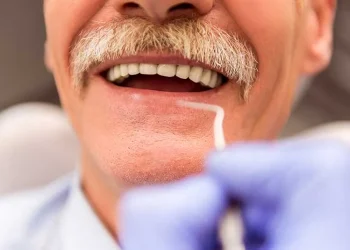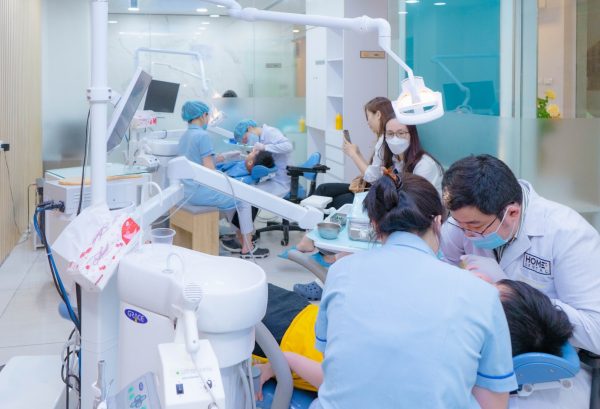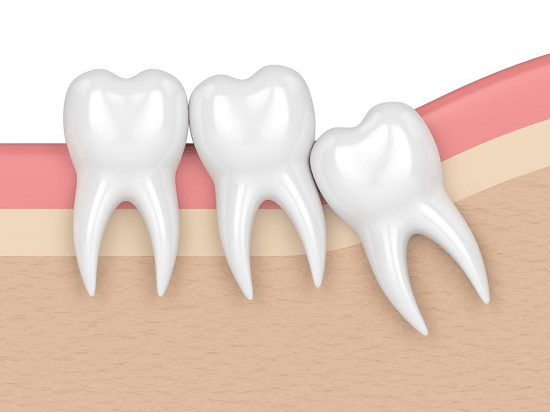Contents
What Foods Can You Eat After Wisdom Teeth Removal?
If you have recently undergone wisdom tooth extraction, then you know how painful and uncomfortable it can be. However, your diet can play a significant role in speeding up the healing process. Certain foods can help reduce inflammation and promote tissue regeneration, while others can cause irritation and delay healing. In this blog post, we will discuss three important dietary tips that can help you recover faster after wisdom tooth extraction.
What should you not eat after wisdom teeth extraction?
Building a suitable diet after wisdom tooth extraction is crucial as the extraction site is still very sensitive at this time. Adapting the menu appropriately can help reduce the impact on the injury treatment and support a faster healing process, thus limiting complications after minor surgery.
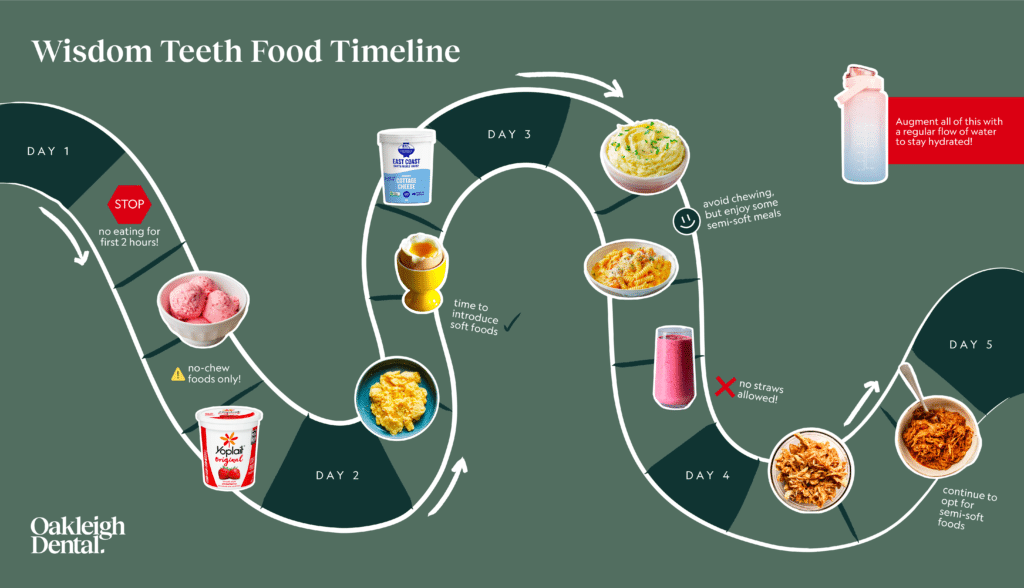
Here are foods that should be avoided after wisdom tooth extraction:
Spicy, hot food
Hot and spicy foods are known to have adverse effects on oral health, especially after wisdom tooth extraction. These foods can increase the temperature of the oral cavity, dilate blood vessels, and stimulate painful areas, leading to a range of complications such as bleeding and infection.
To avoid such complications, it is highly recommended to stay away from hot and spicy foods after a wisdom tooth extraction. This includes foods that contain a lot of chili, garlic, ginger, pepper, cinnamon, rhubarb, and other spices. It’s also advisable to avoid hot soups and porridge, as these can further irritate the oral cavity and delay the healing process.
Crispy food
To ensure a smooth recovery, it is important to avoid eating any crunchy or crispy foods, such as chips, cookies, snacks, cereals, nuts, and any other similar items that may cause debris to pass through the openings and fall into the socket area, thus increasing the risk of wound infection.
Tough, hard food
After removing wisdom teeth, it’s crucial to be mindful of what you eat to ensure a smooth and quick recovery. It’s highly recommended to avoid tough and hard foods during the postoperative period. This is because chewing hard foods can cause a considerable amount of pain and discomfort, which can exacerbate the healing process.
Additionally, chewing tough foods requires the jaw muscles to work hard and continuously, which can impact the wound, break up blood clots, and disrupt the healing process.
Avoid hard foods such as pizza, sandwiches, cakes made from sticky rice, and so on.
Beer and wine.
In addition to the aforementioned foods, it is important to avoid beer, wine and any other alcoholic beverages after wisdom tooth extraction.
This is because alcoholic drinks contain ethanol (C2H5OH), which can hinder the wound healing process by causing dehydration and inflammation in the affected area. Moreover, it can increase the risk of infection, as alcohol is a natural disinfectant that can kill healthy cells and bacteria, leading to further complications.
Additionally, the use of alcohol and beer can even reduce the effectiveness of pain relievers prescribed by doctors, making it harder for the patient to recover from the surgery. Therefore, it is recommended to abstain from any kind of alcohol consumption for at least a week after the wisdom tooth extraction to ensure a prompt and smooth recovery.
What should you eat after wisdom teeth extraction?
In addition to eliminating unhealthy foods, it’s important to incorporate the right foods to speed up the healing process and limit dangerous complications. Experts recommend consuming soft, cool, easy-to-chew and swallow foods that are rich in fiber, protein, vitamins, and minerals after wisdom tooth extraction. Here are some healthy foods that you shouldn’t skip:
Porridge and Soup
After having your wisdom teeth removed, it is important to eat the right foods to promote healing and prevent complications. Since chewing can be quite difficult during the first few days after the procedure, it is best to stick to soft, easy-to-swallow foods that are high in nutrients.
In addition to mashed potatoes, smoothies, and oatmeal, you can also try porridge and soup. These foods are not only easy on the jaw muscles, but they also contain important vitamins and minerals that can help speed up the healing process and reduce the risk of infection.
Moreover, they can help prevent swelling, pain, and bleeding at the extraction site, which are common after dental procedures. So, next time you are wondering what to eat after having your wisdom teeth removed, consider adding soups and porridges to your menu for a speedy recovery.
Yogurt
Yogurt is an excellent snack choice that can provide a variety of health benefits during the recovery period after wisdom tooth extraction.
In addition to being a great source of protein, vitamins, and minerals, yogurt contains probiotic compounds that can help replenish the beneficial bacteria in the mouth. This can be especially beneficial after taking antibiotics, which can disrupt the natural balance of bacteria in the body. By promoting the growth of healthy bacteria, yogurt can help to reduce the risk of infections and other complications following wisdom tooth extraction.
Moreover, the soft texture and cool temperature of yogurt can provide relief from discomfort and inflammation in the mouth. The gentle consistency of yogurt can also help to soothe the tissues and prevent irritation during chewing or swallowing.
By choosing yogurt as a snack after wisdom tooth extraction, you can not only nourish your body with essential nutrients, but also support the healing process and reduce the risk of complications.
Fruits and vegetables
Another option for what to eat after wisdom tooth extraction is to consume fruits and vegetables.
Studies show that fruits and vegetables are rich sources of vitamins, minerals, and fiber. They can provide necessary nutrients for the body, support the immune system, compensate for the lack of energy during fasting, and promote the wound healing process.
To make it easier to consume, you can puree or prepare soft foods or nutritious drinks from green vegetables and fruits to fit your taste preferences. This will allow you to avoid having to chew a lot while still enjoying delicious and nutritious food.
Cheese
Cheese is not only a delicious food, but also a great source of essential nutrients that can be beneficial to your health. It is a rich source of vitamins, minerals, and protein that your body needs to stay healthy.
Additionally, cheese can be an ideal food to consume after wisdom tooth surgery, as it is soft and easy to chew and swallow, which can help to alleviate the pain and swelling caused by tooth extraction.
In addition to its nutritional benefits, cheese can also be a versatile ingredient that can be used to create a variety of delicious dishes. For example, you can use cheese to make a tasty and healthy cheese sponge cake, which is a great way to satisfy your sweet tooth without consuming too many calories.
Similarly, cheese potato soup is a comforting and hearty dish that is perfect for cold winter evenings. And if you’re looking for a healthy and refreshing drink, you can try making a cheese smoothie, which is a great way to get your daily dose of vitamins and minerals while enjoying a delicious and satisfying drink.
Eggs
Eggs are a common dish in every family meal. They are also a recommended food to eat after wisdom tooth extraction due to their rich source of vitamins, proteins, minerals, and more. Eggs provide vital nutrition during the required period of abstinence after wisdom tooth surgery.
You can prepare a variety of dishes with eggs, such as fried eggs, boiled eggs, steamed eggs, or combine them with other ingredients to create delicious and soft egg tarts. If you are unsure about what to eat after wisdom tooth extraction, eggs are a great suggestion.
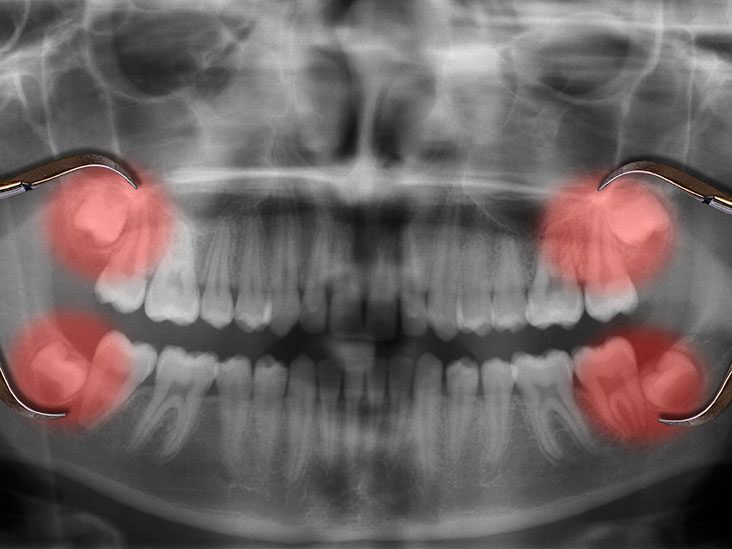
How long after wisdom tooth extraction can I eat and drink normally?
Compared to a normal molar extraction, the wisdom tooth extraction process is more complex, especially in the case of impacted or misaligned teeth. Additionally, wisdom tooth extraction is more invasive and affects the tissues, resulting in a longer recovery time. As a result, special attention must be paid to eating after wisdom tooth extraction. For the first few days after the extraction, it is important to prioritize soft, easy-to-swallow foods. After 3-4 weeks, you can resume your normal eating and drinking habits.
Some other notes after wisdom tooth extraction
To speed up the recovery process after wisdom tooth extraction, in addition to following a scientific diet, it is important to keep in mind the following points:
- Immediately after the extraction, sit in place and bite down on gauze for about 30-45 minutes.
- Rest reasonably for 1-2 days and avoid strenuous exercise, especially if you were under anesthesia.
- Apply cold compress to the extraction site for the first 24 hours to stop bleeding, reduce swelling, and alleviate pain.
- On the first day after extraction, only use low-concentration saline solution or antiseptic mouthwash with chlorhexidine.
- From the second day onwards, gently brush your teeth with a soft-bristled brush or rinse your mouth with saline solution.
- Avoid smoking for at least 3 days after the procedure to avoid complications.
- Do not use straws, touch the extraction site with your tongue or hands, or poke at it to avoid injury.
- If you notice any unusual symptoms, seek immediate medical attention.


